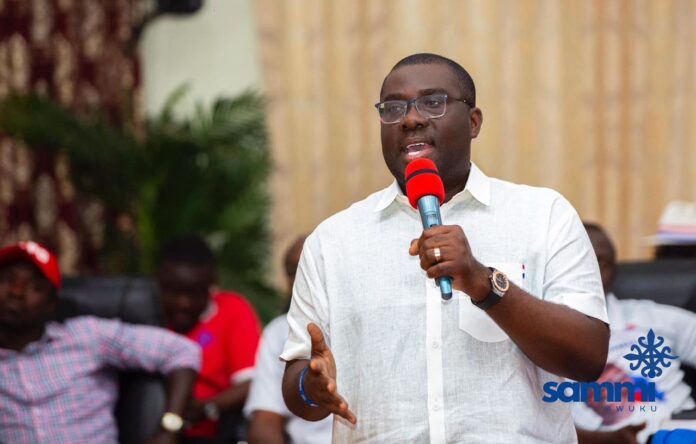Sammi Awuku, a prominent political figure, has issued a strong call to President Akufo-Addo to reverse a recent directive that he argues could set a dangerous precedent for the future of Ghanaian youth.
In a statement posted on his personal social media handle, Mr Awuku voiced his concerns over the potential impact of the directive, which threatens to revoke appointments made after the December 2024 elections, warning that it would undermine young Ghanaians’ rights and future prospects.
Awuku drew comparisons to a similar situation in January 2017 when Hon. Osafo-Marfo, during his vetting, had proposed a revocation of post-election appointments.
At the time, the Akufo-Addo government rejected the suggestion, citing its unconstitutionality and respecting the principle that President Mahama’s mandate remained valid until January 6, 2017.
According to Awuku, the government’s respect for continuity and due process was evident in their refusal to revoke appointments for key positions such as the Commissioner for Human Rights and Administrative Justice (CHRAJ), the Auditor-General, and the National Commission for Civic Education (NCCE), despite political differences.
“Why is it different today?” Mr Awuku questioned, arguing that respecting lawful appointments and continuity should remain unchanged.
He further stressed that those appointed after the December 2024 elections should not be viewed as second-class citizens, as they went through a rigorous recruitment process to secure their positions.
Awuku also highlighted that denying these individuals access to their employment opportunities would violate their economic rights, as enshrined in Article 24 of Ghana’s 1992 Constitution and the United Nations Sustainable Development Goal (SDG) 8, which promotes full and productive employment for all.
“Recruitment is a process, not an event,” Awuku continued, reminding the President that many of these appointments were made long before the December elections.
He questioned whether the employment of public servants in Ghana should now depend on the party in power, suggesting that such a notion would be detrimental to the country’s democratic values.
In his closing remarks, Awuku warned that allowing the directive to stand would send a dangerous message to Ghanaian youth, implying that their future success is tied not to their competence but to the political party in power at the time of their appointments.
“Modern-day governance should not be about punishing perceived political opponents,” he said, urging the government to rise above partisanship in its quest to create employment opportunities for all citizens. “Let’s not toy with the future of the Ghanaian Youth.”
Mr Awuku’s statement has sparked a wave of concern among political analysts and youth groups, with many now watching closely to see whether the government will heed his call and reverse the directive.
ALSO READ

